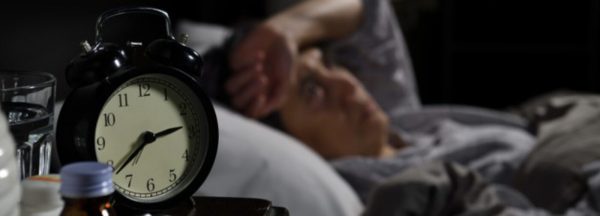 I woke up in the morning, and it seemed I was already tired. 10-15% of adults in the world have sleep disorders. Somnologist Alexander Melnikov told Pravmir.ru what to do if sleep was disrupted due to coronavirus.
I woke up in the morning, and it seemed I was already tired. 10-15% of adults in the world have sleep disorders. Somnologist Alexander Melnikov told Pravmir.ru what to do if sleep was disrupted due to coronavirus.
Insomnia and COVID
“Do those who have recovered from covid have any specific sleep disorders?”

Alexander Melnikov
“Disruption of health is inevitably accompanied by problems with sleep. The consequences of the coronavirus infection can be very serious and severe, many symptoms persist for a long time, and the term “post-covid syndrome” has even appeared in medicine. So far it has been very little studied. It is not surprising that sleep disorders, namely insomnia, become one of the components of this syndrome.
Such insomnia does not have any special manifestations. It can be sleep disturbances, frequent awakenings, disturbances in the quality of sleep, entailing a disturbance in daytime activity.
The causes of acute insomnia after suffering from covid can be the coronavirus infection itself as a severe stress. It can be mental disorders, such as anxiety and depression. Now there is more and more evidence that the coronavirus infection affects the central nervous system, including the centers that regulate sleep, falling asleep, and maintaining sleep.”
“How to improve sleep for those who have had the coronavirus infection?”
“Each situation must be examined individually, so the methods of rehabilitation may be different. For some, it may be a correction for anxiety or depressive disorder.
In some cases of sleep disorders after covid, we recommend a melatonin medicine – a substance that not only regulates circadian rhythms of sleep, but also contributes to the general adaptation of the body to stress factors. Melatonin medicines are most often well tolerated by patients, do not have a large set of any dangerous side effects, do not form addictions, and can be taken for a long time. Melatonin does not always help, and its effectiveness in post-covid insomnia warrants further study.
The most important factor in improving the quality of sleep in a person who has had severe covid symptoms is to gradually increase physical activity and return to normal life. Psychotherapeutic methods for correcting insomnia also play a role.
Insomnia after covid can disappear on its own too, without therapy.”
“Can insomnia be a symptom of some disease?”
“Yes of course. It can be a manifestation of endocrine disorders, such as an increase in thyroid function. So we are usually interested in the level of thyroid-stimulating hormone in a patient.
Insomnia can be a manifestation of other endocrine diseases, diseases of the nervous system, cardiovascular disorders, and diseases of the gastrointestinal tract. Insomnia is often a side effect of various medications.”
Why Do Sleep Disorders Occur?
“What are the most common causes of sleep disorders?”
“The most common cause of short-term insomnia is stress. We all face various stressful situations, conflicts, losses, overloads, and changes in our usual living conditions. All of them can lead to sleep disturbance, since sleep is a very sensitive mental function. Sleep may return to normal after stress has ceased, but insomnia may become chronic if there are factors that predispose and maintain sleep disturbance.
Chronic insomnia most often develops because of anxiety and / or depressive disorders, but at the same time it often acquires the features of an independent mental disorder: not a symptom, as many people believe, but a disease.
It is possible with the help of drugs and psychotherapeutic treatment to eliminate depression and anxiety, but insomnia, if not paid attention to, can remain for a long time.
Insomnia can be caused by poor sleep hygiene, but this is not a common cause and has nothing to do with short-term insomnia.”
“What is sleep hygiene?”
“Sleep hygiene and wakefulness is a set of rules that regulate sleep and ensure its healthy nature. Sleep should be long enough, deep and uninterrupted. This is necessary for the general health of a person.
One of the basic rules is to go to bed and get up at about the same time every day, there should not be much difference in sleep time on weekdays and weekends. Often people go to bed very late on weekends, get up around lunchtime, and then cannot fall asleep in the evening. This disrupts the circadian (daily) rhythms of sleep and wakefulness.
Other groups of sleep hygiene rules are those providing relaxation before bedtime, sleeping conditions (bedroom hygiene), and regulating daytime activities (nutrition, physical activity).”
Should You Take Sleeping Pills?
“When should you take sleeping pills?”
“If a person has short-term insomnia, he cannot fall asleep as a result of some acute stress for several nights, then taking an available sleeping pill, to which he has no contraindications, is a very real and effective way of treatment.
If it is chronic insomnia that lasts for months, then it is wrong to solve the issue with the help of sleeping pills. Sleeping pills do not affect the mechanism of insomnia, which is most often psychological, but only eliminate the symptom. That is, it is just symptomatic therapy.
The main treatment for chronic insomnia worldwide is now cognitive behavioral therapy. This is the most effective method with a high level of evidence, that is, confirmation of its result by research. Sleeping pills are an auxiliary method that can be used either sporadically or when psychotherapy is not available. They should not form the basis of treatment.”
“Many people are afraid of addiction and don’t take medications. Is this justified?”
“Long-term use of active sleeping pills can lead to addiction. It is sometimes even more difficult to cure a person from the addiction, than to eliminate sleep disturbances. Many sedatives and anti-anxiety drugs, most notably benzodiazepine tranquilizers and barbiturates, can cause addiction rather quickly.
In more modern hypnotics, addiction is not formed so actively, but it can also appear with constant use. This leads to the fact that a person becomes addicted to these sleeping pills, and in order to ensure the effect, it is necessary to increase the dose. This is a big problem.
But with short-term insomnia, the use of sleeping pills is possible. I emphasize that this applies to a short course of such treatment.”
“Can soothing herbal teas help with insomnia?”
“The effectiveness of herbal teas for the treatment of insomnia has not been proven. Some doctors recommend various herbal teas, realizing that in this case, you can only count on a placebo effect. This is more a variant of psychotherapy, but not entirely correct.”
“Are there any products that help you sleep better? Some people say that you need to drink tea with honey before going to bed. Is it true?”
“This is more related to relaxation sleep hygiene. Certain bedtime rituals help you fall asleep. A person relaxes, takes a bath, drinks tea – not strong, preferably herbal or fruit tea, – with honey, ginger or something else, which doesn’t matter. This kind of ritual and relaxation helps sleep.”
Why Are Sleep Disorders Dangerous?
“If a person does not sleep well for a long time, what problems can this lead to?”
“It is wrong to say that any sleep disturbance leads to some catastrophic consequences for the general state of health. The bigger problem may not be sleep disturbances, but one’s anxiety about it, which increases insomnia.
A person who does not sleep well begins to worry that this will negatively affect his health. The more he thinks about it, the more likely it is that insomnia will progress, and the more difficult it is to return to normal. We must keep these points in mind when we talk about the importance of quality sleep for human health.
In real life, the global level of public health is more influenced by voluntary sleep restrictions, sleep deficit due to lifestyle, and systematic lack of sleep. Sleep neglect is widespread in our society and is the most harmful factor in health. If a person cannot fall asleep for a long time, but the total duration of sleep is sufficient, the effect on health is not so pronounced.”
“How does one understand which sleep disorder is dangerous to one’s health?”
“Those sleep disorders that shorten sleep duration and / or disrupt the structure – for example, those that suppress deep sleep – are the most dangerous. First of all, sleep disorders, such as sleep apnea syndrome and related conditions, are dangerous to one’s health and shorten one’s life span. Insomnia significantly affects health if the duration of sleep is reduced, which is not always the case.
In general, people talk about chronic insomnia when sleep disturbances occur more than half the nights, that is, more than three times a week.
If this happens rarely, then it is better not to fixate on this and understand that if a person does not sleep one night, this will not greatly affect the state of their health during the next day.
If important things are coming the next day, and sleep does not come, then it is better to do relaxation and try to rest, without making any effort to fall asleep. Sleep in this case will come faster, there may be enough time to rest until morning.”
“What if insomnia does not go away for a long time?”
“There is such a rule that the more a person worries about insomnia, the stronger it will be. So it’s best not to worry. If there is a serious and persistent problem with sleep, it is best to see a sleep doctor or any doctor familiar with modern approaches to insomnia.”
What Should You Do If You Can’t Sleep?
“If a person cannot sleep, what is the best way to fall asleep? Should they get up and do something or lie down, waiting for sleep?”
“It depends on the situation. If this condition occurs once, it is not necessary to immediately get out of bed, you can wait and fall asleep after 30-40 minutes.
But if this is a chronic process and this is repeated every night, you do not need to try to sleep and stay in bed for hours, making efforts to fall asleep, this will not lead to anything good.
In behavioral therapy there is a method of controlling the stimulus, its essence is that a person should sleep in bed, and not try to fall asleep. With this method, if you cannot fall asleep in 15 minutes, it is better to leave the bedroom and do something calm, preferably useful, for 45 minutes in another room, and return to bed in a more sleepy state.”
“Is it effective to count lambs to fall asleep?”
“Counting is not the best method. When a person counts, he makes a certain mental effort. Repetitive action, even this monotonous one, can lead to the person being unable to relax.
There are other techniques, for example, what is called imagination: the presentation of pleasing abstract visualizations.
The most important thing is to disconnect from the effort to fall asleep. It’s better to switch to something else.
If a person begins to think about what happened during the day in detail, remembers his problems, these thoughts often become like a mental chewing gum, or rumination, as psychotherapists call it. This prevents you from falling asleep very much. There are special psychotherapeutic approaches to get rid of rumination.”
“Is it harmful to use gadgets before going to bed?”
“Yes, of course, the use of gadgets with a bright screen does not promote sleep.”
“How much before bedtime is it better to put off the phone?”
“It is advisable to do this an hour and a half before bedtime.”
“Is reading a book before bed harmful or beneficial?”
“Reading will not hurt falling asleep, but it is better if it is not an electronic, but a paper book.”
“Is it bad to watch TV before bed?”
“TV is not as harmful as a smartphone. It does not have such a bright screen glow, and the person usually doesn’t sit so close to it.
Much depends on what you watch. If this is some kind of calm film without shooting and chases, then why not. But watching the news or political programs in our time is unlikely to promote sleep.”

















